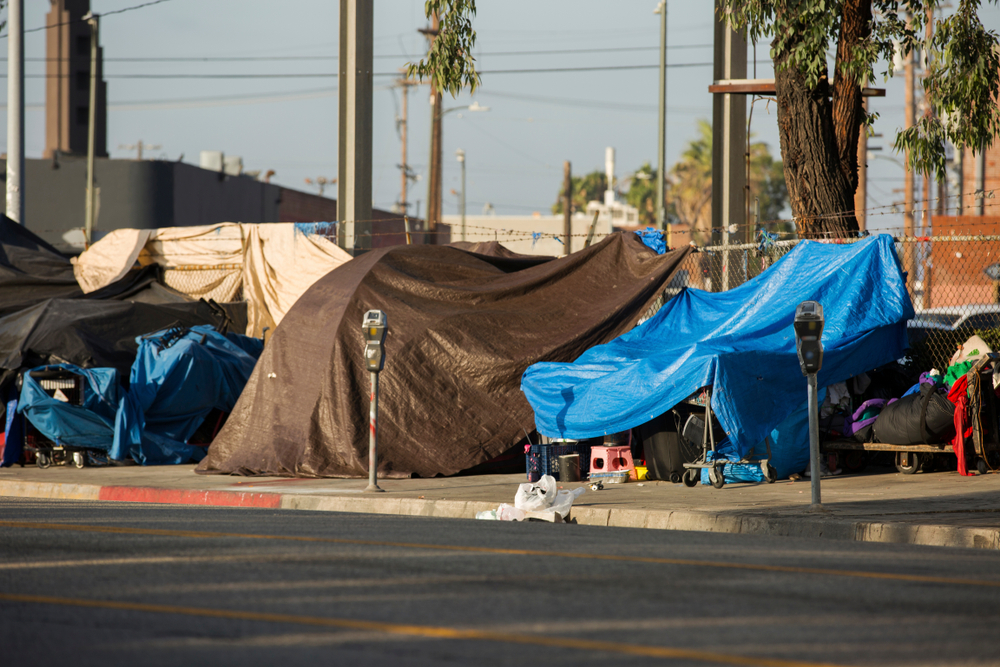
Add Albuquerque to the growing list of U.S. cities beseiged by the homeless crisis as encampments pop up all over the city, and for one family it’s hitting home particularly hard as its mission to help the homeless has been overtaken by the homeless themselves and the neighborhood in which they live is described as a “war zone.”
ABC’s “Extreme Makeover: Home Edition” visited Albuquerque to build not only a home for Gerald and Liesa Martinez but also a homeless shelter on their property after a local church nominated the couple for the work they had done for the homeless in the community. The show also razed ten condemned builidings and built low-income housing in their place. However, in the fourteen years since the show aired patriarch Gerald died of cancer, the homeless numbers have increased 33% and many homeless have become violent and demanding to the point that Liese has had to close the shelter.
“Before he died, even Gerald said this isn’t working. We’re being taken advantage of. Where we’re enabling too much,” Reece [formerly Martinez] said. Reece said crime and homelessness were getting worse just before her husband’s death. “Some of the people that we helped the most were the ones that became the most vicious. They became entitled that we owed them something,” Reece said.
Reece has since converted the shelter to a venue for weddings. Across the street from her home and venue a homeless shelter has appeared despite the city’s solid waste department’s dismantling it several times.
“Absolutely. Without a doubt. It’s never been this bad,” Reece said.
The City of Albuquerque recently passed amendments that increased the city’s budget for homelessness and emergency housing by more than 100%. Part of the funds will be used to establish “tent cities” on vacant dirt lots. Mayor Tim Keller is addressing the crisis via a “housing first” approach according to local news outlet KOAT 7 and the City Council responded to the mayor’s budget request by doubling the money going towards emergency housing support from $7 million to $15 million. A few city councilors are expanding on the housing first initiative and propose using city property as designated homeless camps.
D’Albert Hall, deputy director for Albuquerque Community Safety, doesn’t know if the increase in emergency housing will actually help to solve the homeless crisis as the goal of the group is simply to assist in any way we can. Hall and his team responded to nearly 750 citizen complaints of homeless living on the streets in April alone. “We try to meet the individuals where they are, trying to find out if there’s any needs that we can meet…There’s not one answer to this. There’s a lot of different issues,” Hall said.
New Mexico Coalition to End Homelessness compiled data to determine that the number of homeless people on the streets of Albuquerque has increased 33% since 2013. According to Hank Hughes, Executive Director of the coalition, the numbers will continue to rise at least for a little while.
“Homelessness is pretty bad. The count we do is an undercount. As you could probably figure, we don’t find everybody when we’re out doing the count,” Hank Hughes said.
The KOAT report makes no mention of the rampant drug addiction and mental health issues within the homeless communities which is propelling the crisis to unprecedented levels.
This story syndicated with permission from For the Love of News